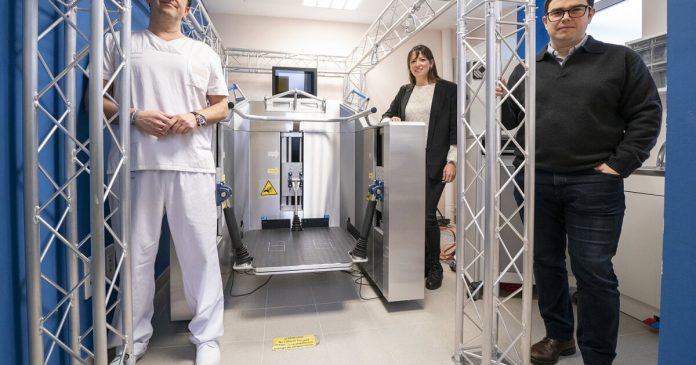After experiencing a stroke, individuals may struggle with partial paralysis and a lack of strength, leading to difficulties in maintaining balance. A new rehabilitative platform has been developed to aid in the recovery process by objectively evaluating their “center of pressure.”
Traditionally, therapists assess a stroke patient’s stability while they walk, stand, or engage in other activities to gauge their progress in regaining balance. However, this method is subjective, as different therapists may interpret balance impairments differently. Additionally, a therapist’s assessment may vary based on factors such as their mood.
The new mobile platform, created by scientists from the University of the Basque Country in Spain, continuously and objectively measures and tracks the patient’s center of pressure.
“Picture standing on a bus that’s in motion,” explains Assoc. Prof. Francisco Campa, a member of the team. “As the bus accelerates or stops, the body shifts its weight to balance itself, which is reflected in the center of pressure. Monitoring this movement helps evaluate a person’s balance.”
When a patient stands on the platform, the floor beneath them moves up and down and tilts in various directions. Four pressure sensors underneath the floor capture changes in the center of pressure as the individual tries to maintain balance against these movements.
Crucially, the platform can replicate the exact floor movements and parameters for each assessment session, ensuring consistency. The patient’s progress is measured by an algorithm that remains constant each day.
The platform has undergone successful clinical trials at Gorliz Hospital in Spain, showing promising results. Researchers envision its potential use not only for stroke patients but also for individuals dealing with vertigo or amputees adjusting to prosthetics.
A research paper detailing this technology was recently published in the journal Mechatronics.
Source: University of the Basque Country




